Stefanie Thöny studied communication, environmental science and ethnology at the University of Zurich. She moved on to work in environmental education and then later worked in an asylum centre. She discovered there that working with different kinds of people gave her a lot of joy and fulfilment, so she decided to study social work. For the past eight years she has been working at the Zurich Women’s Shelter which offers 24 places for women, with or without children, who have been affected by violence. The offer includes emergency shelter, protection and safety, psychosocial counselling, legal information and networking possibilities. The women’s shelter thus provides a framework for the important initial psychological stabilization and overcoming of trauma. Stefanie Thöny grew up in Liechtenstein and now lives in Zurich. Her hobbies include climbing, Thai boxing, and art and culture. She is 41 years old, married and mother to two small children.
What are your current activities?
I work 60% at the women’s shelter in Zurich. There I advise and spend time with the women and their children, most of whom are seeking protection from their violent partners and fathers. I am also the mother of two small children.
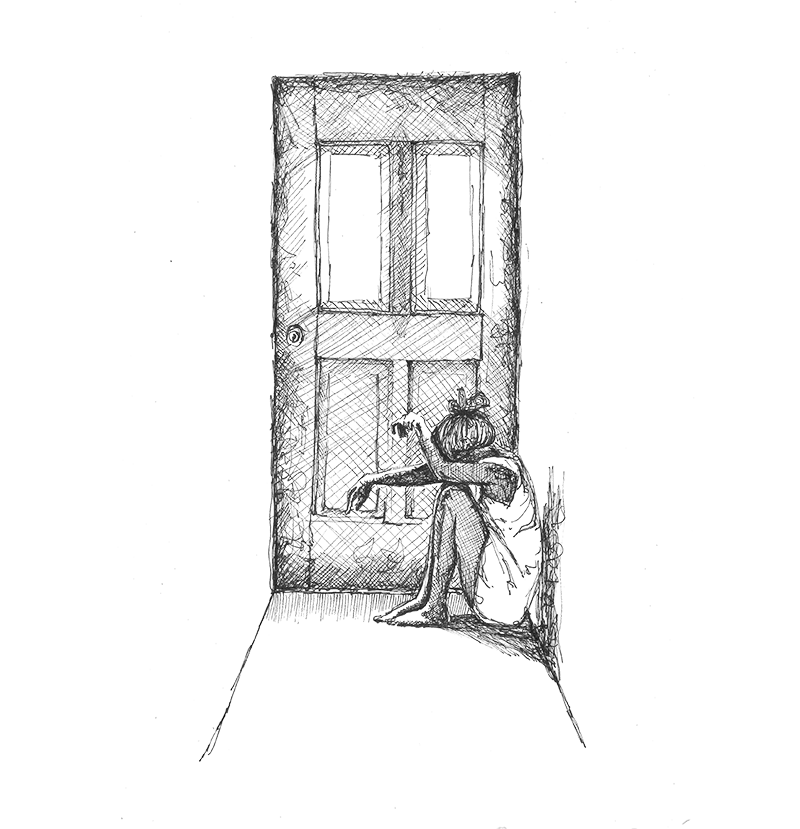
Does what you are currently doing fulfil you?
I am very fulfilled by my work at the women’s shelter. I work with different departments and professionals, and I find it to be very varied and exciting, even after several years of working there. The daily routine in a crisis intervention is fast and always surprising. I appreciate the wide range of activities, from the more classical social work and the related counselling and networking of the women, to the sharing of everyday life such as eating together, going on excursions, having parties… This allows for a great closeness and familiarity between the residents and staff. Since most of our clients have a migration background and come from different social classes, I always learn something new about different cultures and lifestyles. In addition, our clients and their children show us a great deal of gratitude and appreciation. For many of them the time spent in the shelter is a pivotal period in their lives. Domestic violence, by the way, occurs in all cultures and classes. However, Swiss women and women from higher classes are underrepresented in the women’s shelter because they usually stay with their families, with acquaintances or in a hotel in such times of crises and use outpatient victim counselling services.
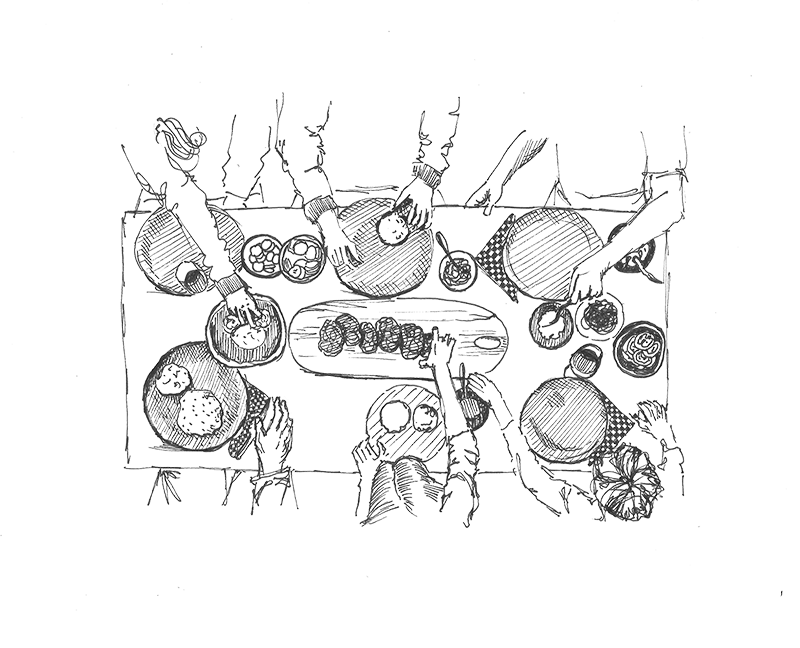
What or who gives you strength and energy in everyday life?
At work, my co-workers give me strength and energy because we have a very open and supportive relationship. The same goes for my boss, because she gives us a lot of freedom, but at the same time I know that I can count on her when I need something. Last but not least, our residents also give me energy, because I see how they gain new self-confidence and strength with us.
There are ‘magic moments’ when everything seems to fit. Moments that fulfil, inspire and give strength. Moments that confirm that the effort is worthwhile and that what you do is meaningful and valuable. Have you already experienced such moments in relation to your own activities?
When I see a woman or a child blossom after a few days or weeks in the women’s shelter, unfold, move more freely, become more alive and smile – these are magical moments for me. For me, there is something very magical about witnessing people find their way back to themselves, to their original strength, because it goes hand in hand with an inner and outer transformation.
Do you actively do something for it, so that such ‘magic’ moments can happen?
We try to create a space in the women’s shelter in which the women and children feel safe. On the one hand this comes through the external conditions, such as the anonymity of the place and the safety precautions we have, while on the other hand it comes through the counselling and support we offer. In this way, a tension and fear within these women and children that has often been built up and sustained over years can slowly be released and an initial stabilization can take place.
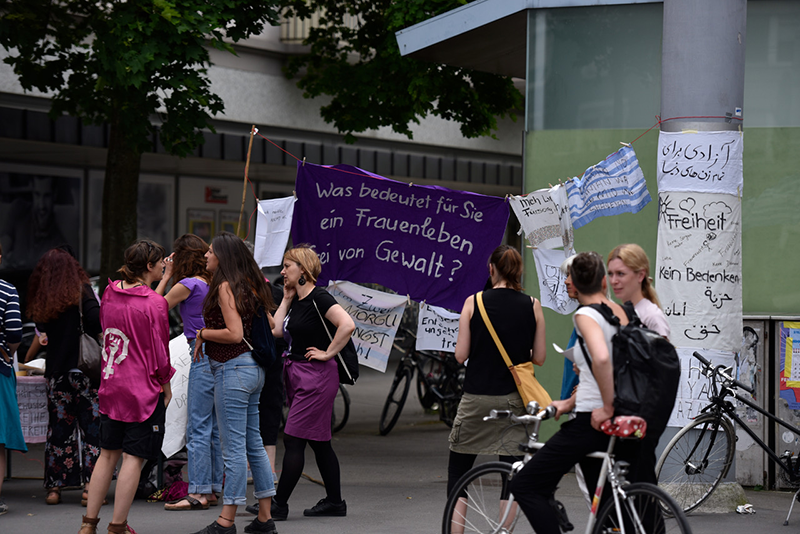
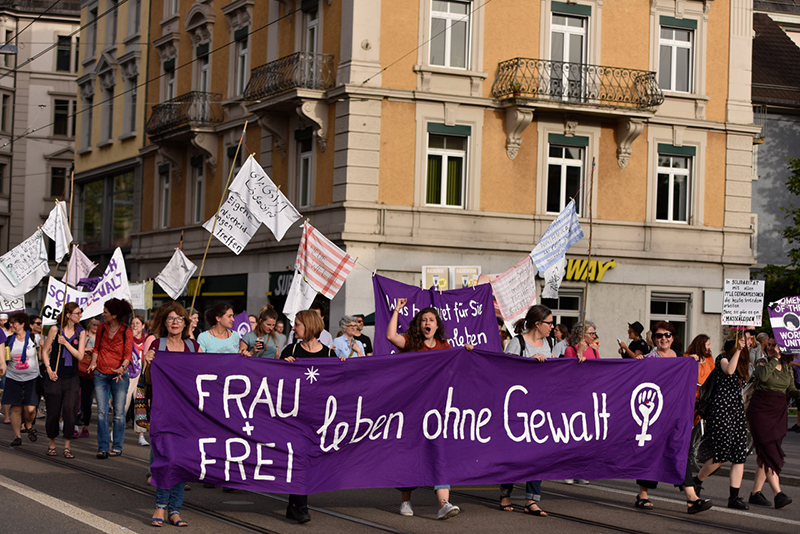
Are there moments when you doubt what you are doing?
When I read in the newspaper about a femicide – a murder of a woman – I feel fear. Fear that I knew the woman who was killed, fear, sadness and anger when I think of the suffering of the woman’s family and, if she had been a mother, especially her children. Then I get angry that we as a society cannot prevent such suffering and that we cannot succeed in stopping domestic violence. In such moments I try to think of the women who have succeeded in escaping from a violent relationship, and of the children who have thus been able to grow up in a violence-free environment.
It also frustrates me when I witness a woman who, after a few weeks in a women’s shelter, has to return to her violent partner because she is afraid otherwise that she will lose her residence status in Switzerland. In such moments, I try to think of the small successes that have already been achieved in this regard, such as the possibility of the hardship case. The hardship case allows people affected by domestic violence to stay in Switzerland even though their marriage is dissolved and even though they are not yet in Switzerland for the normally required three years of residence. Unfortunately, in practice there are some hurdles to achieving a case of hardship, such as ‘a certain duration and intensity of domestic violence’, which must be proven. I hope that in the future we will no longer be discriminated against because of our gender or origin, but that we will all have the same rights.
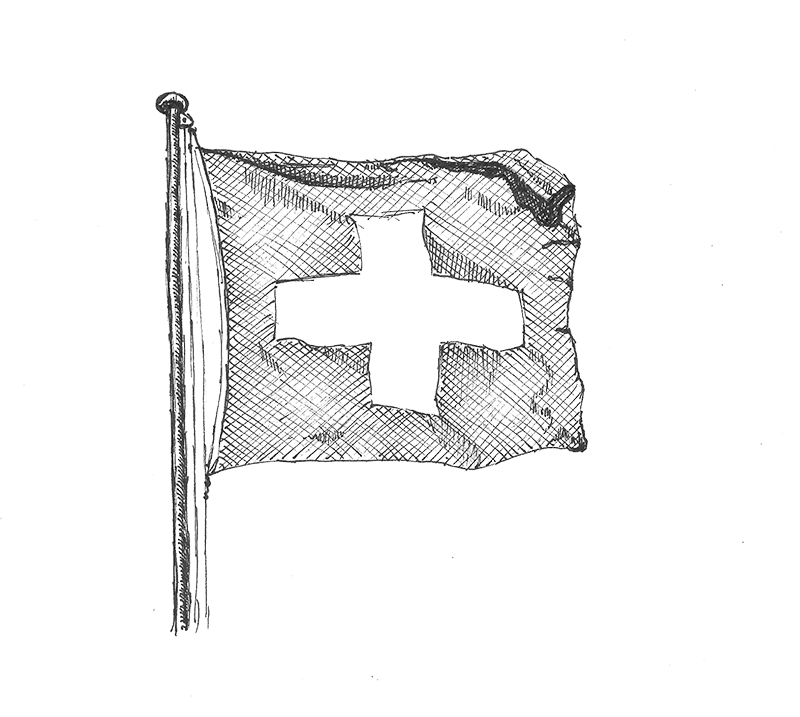
Do you want to contribute to society with your activities?
Of course, through my work I hope to contribute something to a more egalitarian and equal society and to support women and their children to live a self-determined life, free from violence.
Is there something you would like to (increasingly) spend time on in the future?
In the future, I would like to get more involved in politics and also work for an egalitarian, equal and ecological society in this way.
What are you most grateful for in life?
For my family, my friends and my work.
Interview
Laura Hilti, August 2020
llustrations
Stefani Andersen
Credits
Portrait photo: Stefanie Thöny
Women’s Strike: Hamid Khoshamanzar
This interview is part of the project “Magic Moments” by Kunstverein Schichtwechsel, in which people are interviewed about their careers, activities and their magical as well as difficult moments.
Curated by Stefani Andersen and Laura Hilti, Kunstverein Schichtwechsel.
Supported by Kulturstiftung Liechtenstein and Stiftung Fürstl. Kommerzienrat Guido Feger.
>>> All interviews
